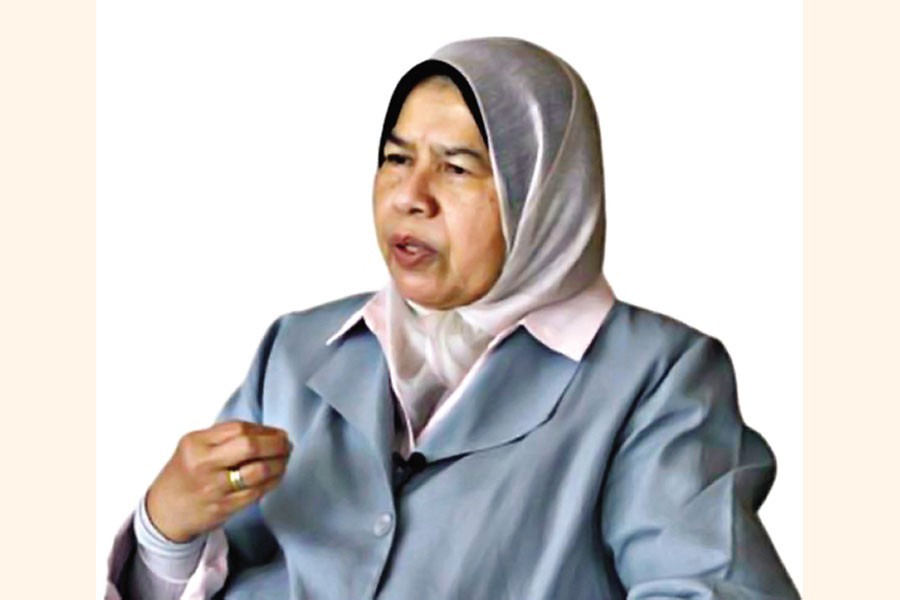Malaysian palm-oil import by Bangladesh increased thirteen times in last December-January period, amid a high demand for cooking oils that sent prices spiraling to a record high.
The quantum leap in the oil import was disclosed by visiting Malaysian Minister of Plantation Industries and Commodities Datuk Zuraida Kamaruddin, who also showed ways of bridging a yawning gap in the bilateral trade.
Terming this increase very encouraging, Ms Kamaruddin said Malaysia is now looking for ways to establish downstream industries in Bangladesh for the commodities which are under her ministry.
Specially, products like palm oil, rubber and timber of Malaysia can be processed here, she says, adding that Malaysian businesspeople are actively considering setting up joint-venture industries in Bangladesh.
Addressing a select group of journalists Friday in a Dhaka hotel, the Malaysian minister noted that the investment climate in Bangladesh is improving a lot.
The growing furniture and footwear industries in Bangladesh trigger the demand for Malaysian timber and rubber so there can be so many downstream factories here, which will process and use these products.
In this connection she mentioned recent policy reforms by Bangladesh for foreign investors, including an increase in the number of EPZs, duty-free facilities provided by many countries and profit-repatriation measures.
Responding to a question she said that Bangladesh's textiles, footwear and leather sectors have huge potential of exports in Malaysia to offset the huge trade imbalance, now in favour of Malaysia.
Exports to Bangladesh from Malaysia amounted to USD1.3 billion whereas Malaysia imports products worth only 800,000 dollars annually, she says, quoting recent statistics.
The minister mentions that there are around 500,000 overseas workers in the plantation sector of her country, and 200,000 among them are Bangladeshi.
Appreciating Bangladeshi workers as loyal and hardworking, she says her ministry tries its best to provide best possible living conditions to the overseas workers.
Ms Kamaruddin got no reports of abuse of overseas workers in her sector.
During her visit, the minister met the Prime Minister, the Commerce Minister, the Finance Minister and local business leaders, among others.
Her ministry is responsible for development of commodities such as rubber, tin ore, oil palm, cocoa, forestry and timber, minerals, pineapple and tobacco to further contribute to the national economy.
The ministry is tasked to oversee the development of agro-commodity plantations and industries ranging from production, midstream processing and manufacturing to marketing.
The sector has evolved from being a mere producer and exporter of raw materials to producing semi-processed, processed and finished products, contributing significantly to the generation of higher value-added products to meet a growing global demand.
There are six agencies under the ministry which are aligned to the objective of the ministry to spearhead development of the commodity sector. These agencies include the Malaysian Palm Oil Board (MPOB), the Malaysian Rubber Board (MRB), the Malaysian Timber Industries Board, the Malaysia Cocoa Board (LKM), the Malaysia Pepper Board (MPB) and the National Kenaf and Tobacco Board (NKTB).


